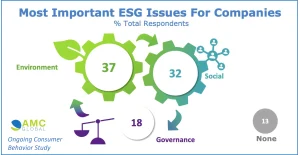In 2025, deepfake scams have become a global concern, leveraging advanced AI technology to create highly realistic fake videos, audio, and images that deceive individuals and organizations alike (Ajder et al.). These scams exploit the likenesses of public figures, corporate executives, and even loved ones to spread misinformation, manipulate trust, and orchestrate fraudulent activities. For instance, scammers have used deepfake videos to impersonate CFOs during virtual meetings, tricking finance staff into transferring millions to fraudulent accounts (Harwell). Similarly, sextortion schemes have surged as criminals use deepfakes to generate explicit fake content from victims’ social media photos for blackmail purposes (Vincent).
Adding to the alarm is the role of AI tools like DeepSeek in China, which have been discovered disseminating fake news and government propaganda under the control of the Chinese Communist Party (Gilbert). As a Chinese company, DeepSeek’s operations are believed to be aligned with state directives, demonstrating how AI-powered deepfakes are not only tools for financial fraud but also instruments for brainwashing and political manipulation. This dual use of deepfake technology underscores its capacity to erode trust in digital communication while serving as a means of controlling narratives and influencing public perception (Burgess).
The rise of such scams highlights the urgent need for robust detection tools, regulatory frameworks, and public awareness to combat these sophisticated cyber threats effectively.
Ajder, Henry, et al. The State of Deepfakes: Landscape, Threats, and Impact. Deeptrace, Sept. 2019, https://www.deeptracelabs.com/resources.
Burgess, Matt. “AI Voice Scams Are Getting Really Good.” WIRED, 3 Mar. 2024, https://www.wired.com/story/ai-voice-deepfake-scam/.
Gilbert, David. “China’s AI Chatbot DeepSeek Is Spreading CCP Propaganda, Researchers Say.” Vice News, 17 Apr. 2024, https://www.vice.com/en/article/4a3m3w/deepseek-ai-china-propaganda.
Harwell, Drew. “A Voice Cloned from a Social Media Video Fooled a Company into Transferring $25 Million.” The Washington Post, 1 Feb. 2024, https://www.washingtonpost.com/technology/2024/02/01/ai-voice-scam-fraud-deepfake/.
Vincent, James. “Deepfake Pornography Is an Epidemic.” The Verge, 6 Oct. 2023, https://www.theverge.com/2023/10/6/23904141/deepfake-porn-nonconsensual-explicit-content-ai.


